'We deserve peace' - Colombians react to referendum result
- Published
!["A big No. No to impunity. Like ['No' campaigner and former President] Pastrana said: 'WE deserve peace but with justice.'"](https://ichef.bbci.co.uk/ace/standard/976/cpsprodpb/16B66/production/_91503039_no.jpg)
"A big No. No to impunity. Like ['No' campaigner and former President] Pastrana said: 'WE deserve peace but with justice.'"
The question that was posed on the ballot was worded simply. "Do you support the agreement to end the conflict and build a stable and lasting peace?"
The Colombian people voted to answer that question "no". It was a surprise result following the peace deal negotiated by the Colombian government with Farc rebels to end a war that had lasted 52 years.
Around 38% of a potential 13 million voters took part in the referendum and they voted against the deal by the narrowest of margins - fewer than 54,000 votes.
Disappointment at the result was recorded on social media in hashtags like #MeDuelesColombia ('You Hurt Me Colombia') #PaisInsensato (Foolish Country) which began trending on Twitter in the immediate aftermath.
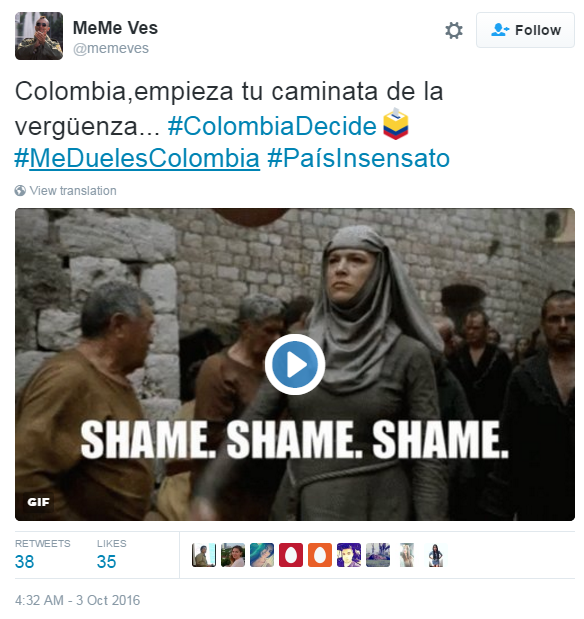
"Colombia, begin your walk of shame" said this Game of Thrones referencing tweet
Several Twitter users expressed how unexpected the referendum result had been. "It is a tough reality to know that we can't live away from the culture of death," wrote one user, external. "I had never cried for losing an election, yesterday I felt helpless to see how hate and revenge won," said another, external.
Polls conducted ahead of Sunday's vote indicated a definitive win for the "yes" campaign and President Santos had said, external, during campaigning, that he did not have a plan B and that Colombia would return to war if the no vote won.
The referendum, was due to formalise the peace agreement signed on 27 September, would have disarmed the Marxist rebel group known as the Farc. The peace deal promised to end Latin America's longest guerrilla conflict; fighting had resulted in more than 260,000 deaths over the past five decades.
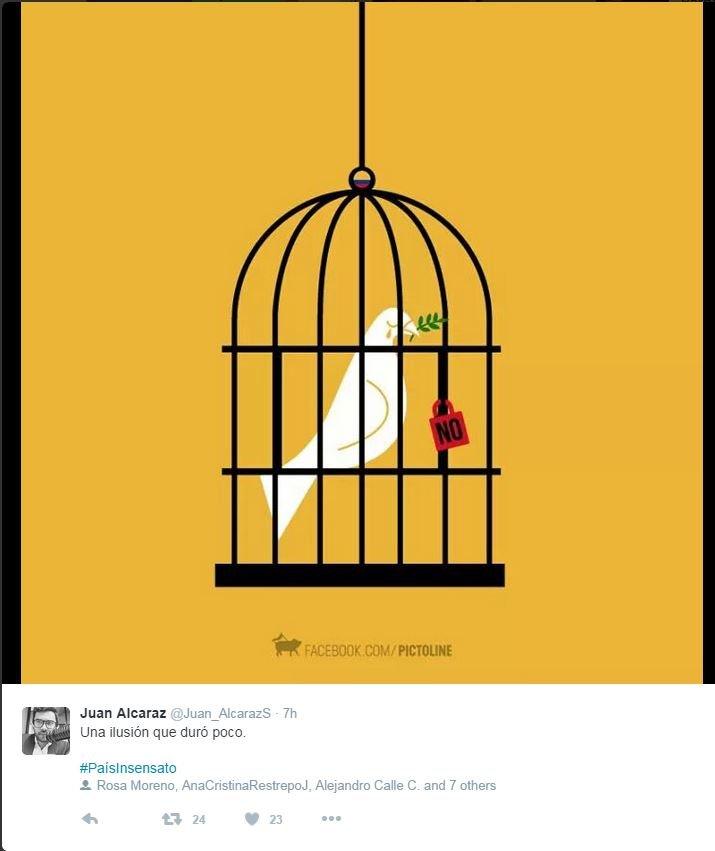
"A short-lived illusion"
If the "yes" vote had won, external, the Farc would have had six months to move its more than 5,000 foot soldiers into special zones in the country. They would have then had to disarm and hand over weapons to United Nations inspectors. The Farc had also agreed to stop fuelling the cocaine smuggling business. In exchange, Farc members convicted of war crimes would have been given more lenient sentences and spared conventional prisons. They would have also been allowed to form a political party that would be recognised by the government and take 10 seats in the country's 268 member Congress, external.
Those who rejected the deal said the government had made it on terms too favourable to the rebels.
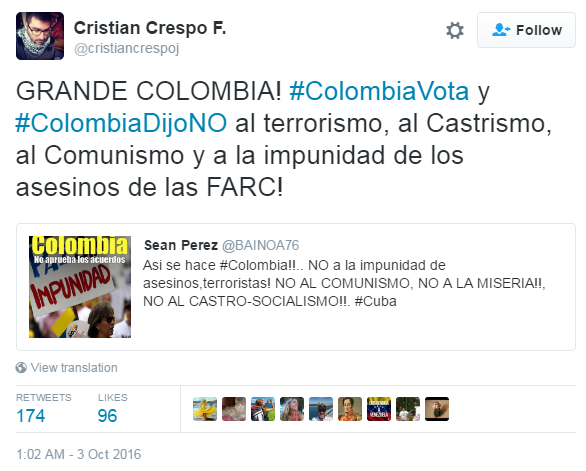
"GREAT COLOMBIA! #ColombiaVote and #ColombiaSaidNO to terrorism, to Castroism [a reference to influence by Cuba's former President Fidel Castro], to Communism and impunity for the Farc murderers!"
Colombia's future had been a subject of social media discussion for several days leading up to the vote. Celebrities from Colombia, Ecuador and Spain had posted images, external of the peace symbol drawn on their hands, with the hashtag #Peace4Colombia to show their support for the peace agreement.
On the day of the referendum on 2 October, singer Juan Esteban Aristizábal had posted his proof of vote, encouraging others to vote for the agreement.
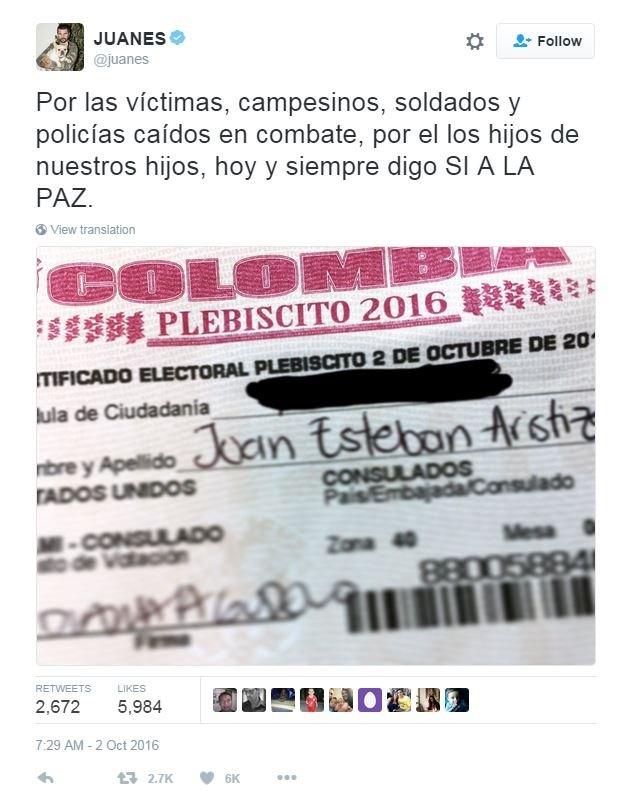
"Because of the victims, peasants, fallen soldiers and policemen, our children's children, today and always I say YES TO PEACE."
Although Saumet has not expressed his feelings post-referendum, actress Juana Acosta made her feelings for the result clear on Instagram, external.
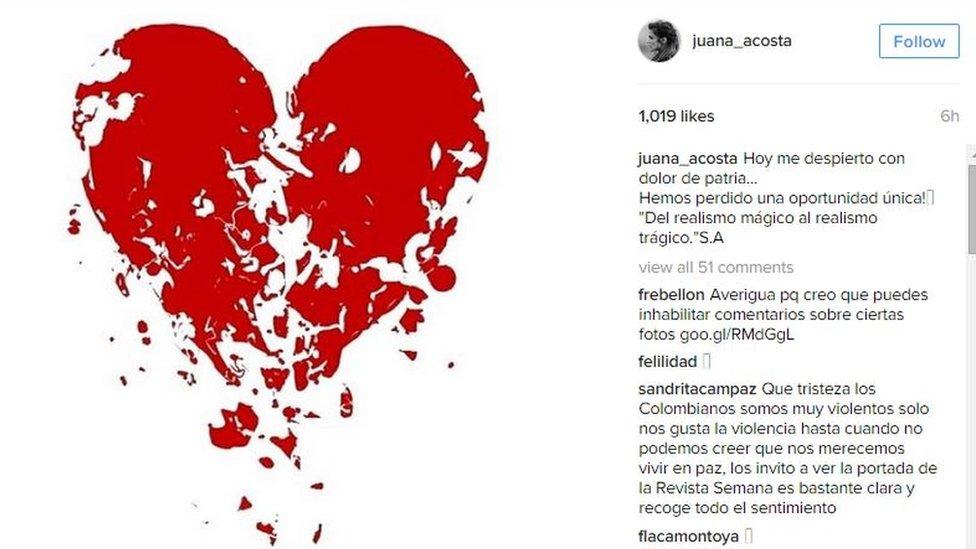
"Today I wake up with pain for my homeland...We lost a unique opportunity, what sadness!"
But what next for the country that had "no plan B"? In the hours following the vote the Farc leader known as Timochenko said that the rebels remained committed to securing an end to the conflict, and would maintain the ceasefire.
And while the Colombian government may have to go back to the drawing board to rework a deal that is acceptable to the people of Colombia, President Santos tweeted that he was hopeful for the future.
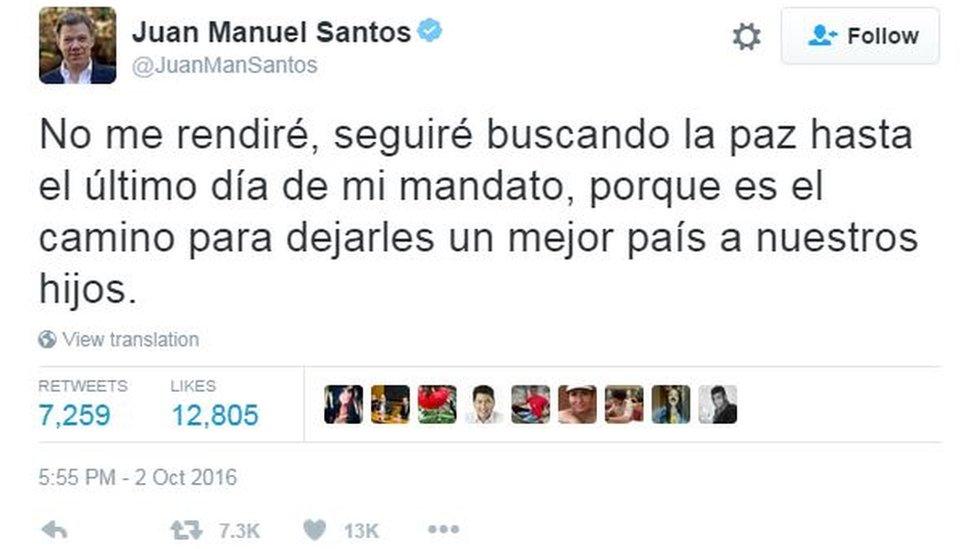
"I will not give up, I'll keep looking for peace until the last day of my term, because it is the way to leave a better country to our children."
Blog by Megha Mohan, externaland additional research by Tse Yin Lee and Alvaro A. Ricciardelli
Next Story: iPhone 7? You're fired!
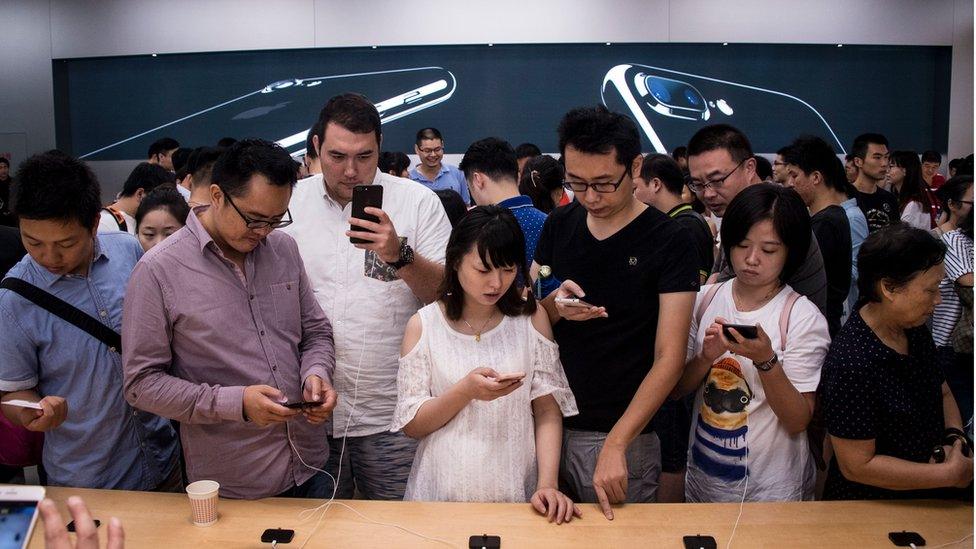
Why buying Apple's latest phone could be a bad career move in China. READ MORE
You can follow BBC Trending on Twitter @BBCtrending, external, and find us on Facebook, external. All our stories are at bbc.com/trending.